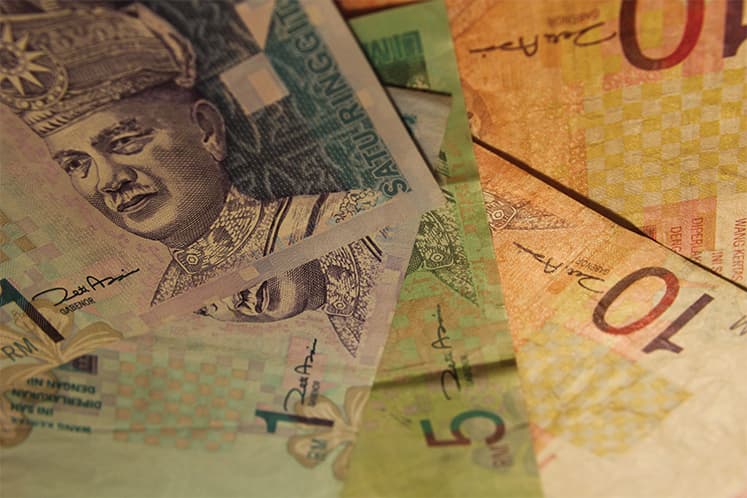
KUALA LUMPUR (March 16): The ringgit depreciated to its weakest point against the US dollar so far today at 4.3047 as weaker crude oil prices heaped pressure on the Malaysian currency. The ringgit weakened today despite a depreciating US dollar after the US Federal Reserve’s Sunday 100 basis-point emergency interest rate cut to between 0% and 0.25% to mitigate the economic impact of the Covid-19 pandemic.
At the time of writing today, the ringgit was traded at 4.3020 against the US dollar after exchanging hands between 4.2910 and 4.3047 earlier today.
Against other currencies, the ringgit strengthened to 3.0322 against the Singapore dollar and 13.4513 versus the baht.
The ringgit tracks crude oil prices as Malaysia is a net oil exporter.
Reuters reported that oil extended losses on Monday as an emergency rate cut by the US Federal Reserve failed to soothe global financial markets panicked by the rapid spread of the coronavirus while a price war rages on between top producers.
Brent crude fell US$1.13 to US$32.72 a barrel by 0230 GMT, tumbling after last week’s plunge of 25%, the largest weekly fall since 2008. The front-month price opened at a high of US$35.84 but slipped to a low of US$31.63. US crude was at US$31.01, down 72 cents, after slipping below US$30 earlier in the session, despite US President Donald Trump’s pledge to fill strategic oil reserves in the world’s largest oil consumer “to the top”.
"The Fed slashed interest rates on Sunday in its second emergency cut this month, and said it would expand its balance sheet by at least US$700 billion in the coming weeks in a bid to ease tension in financial markets.
Oil prices have come under intense pressure on both demand and supply sides: Worries about the pandemic slashing oil buying persist, while oversupply fears have grown after top exporter Saudi Arabia ramped up output and slashed prices to increase sales to consumers in Asia and Europe. Earlier this month, the Organization of the Petroleum Exporting Countries and Russia failed to extend a production cut agreement that has been supporting prices since 2016,” Reuters reported.
Kenanga Investment Bank Bhd said in a note today that the Covid-19 pandemic and uncertainty in the global oil market could send the ringgit into a free fall this week due to the heightened risk of economic downturn.
“Though ringgit is biased on the downside, volatility to rein on USD/MYR,” said Kenanga Research.
Affin Hwang Investment Bank Bhd said in a note today that even though Malaysia’s reliance on oil-related revenue has declined in recent years, the trajectory of the global oil prices still has important implications for the growth of the Malaysian economy and currency.
"In recent weeks, greater volatility was experienced in foreign exchange markets, where Asean currencies fluctuated and depreciated against the US dollar. While the Malaysian ringgit is expected to remain volatile in the near term (RM4.30/US$ currently), we continue to maintain our year-end target of RM4.20/US$, supported by economic fundamentals such as liquidity in the domestic market and sound financial markets, as well as healthy current account surpluses together with steady international reserves,” Affin Hwang said.